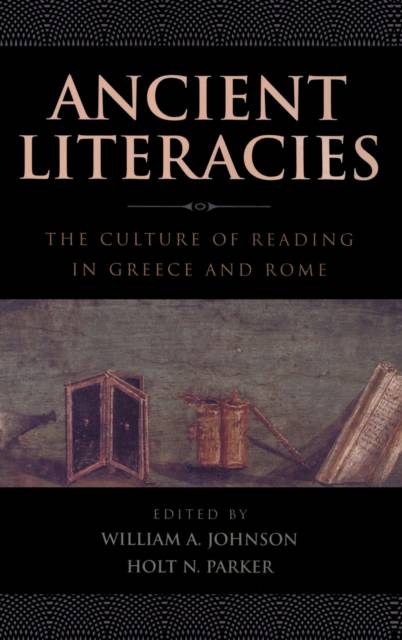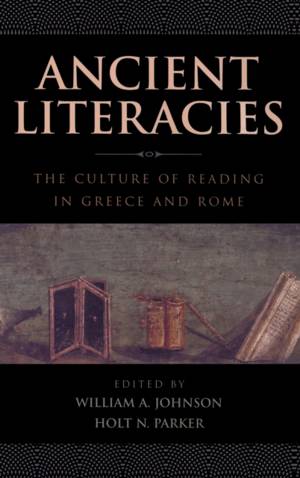
- Retrait gratuit dans votre magasin Club
- 7.000.000 titres dans notre catalogue
- Payer en toute sécurité
- Toujours un magasin près de chez vous
- Retrait gratuit dans votre magasin Club
- 7.000.0000 titres dans notre catalogue
- Payer en toute sécurité
- Toujours un magasin près de chez vous
145,45 €
+ 290 points
Description
Classicists have been slow to take advantage of the important advances in the way that literacy is viewed in other disciplines (including in particular cognitive psychology, socio-linguistics, and socio-anthropology). On the other hand, historians of literacy continue to rely on outdated work by classicists (mostly from the 1960's and 1970's) and have little access to the current reexamination of the ancient evidence. This timely volume attempts to formulate new interesting ways of talking about the entire concept of literacy in the ancient world--literacy not in the sense of whether 10% or 30% of people in the ancient world could read or write, but in the sense of text-oriented events embedded in a particular socio-cultural context. The volume is intended as a forum in which selected leading scholars rethink from the ground up how students of classical antiquity might best approach the question of literacy in the past, and how that investigation might materially intersect with
changes in the way that literacy is now viewed in other disciplines. The result will give readers new ways of thinking about specific elements of "literacy" in antiquity, such as the nature of personal libraries, or what it means to be a bookseller in antiquity; new constructionist questions, such as what constitutes reading communities and how they fashion themselves; new takes on the public sphere, such as how literacy intersects with commercialism, or with the use of public spaces, or with the construction of civic identity; new essentialist questions, such as what "book" and "reading" signify in antiquity, why literate cultures develop, or why literate cultures matter. The book derives from a conference (a Semple Symposium held in Cincinnati in April 2006) and includes new work from the most outstanding scholars of literacy in antiquity (e.g., Simon Goldhill, Joseph Farrell, Peter White, and Rosalind Thomas).
changes in the way that literacy is now viewed in other disciplines. The result will give readers new ways of thinking about specific elements of "literacy" in antiquity, such as the nature of personal libraries, or what it means to be a bookseller in antiquity; new constructionist questions, such as what constitutes reading communities and how they fashion themselves; new takes on the public sphere, such as how literacy intersects with commercialism, or with the use of public spaces, or with the construction of civic identity; new essentialist questions, such as what "book" and "reading" signify in antiquity, why literate cultures develop, or why literate cultures matter. The book derives from a conference (a Semple Symposium held in Cincinnati in April 2006) and includes new work from the most outstanding scholars of literacy in antiquity (e.g., Simon Goldhill, Joseph Farrell, Peter White, and Rosalind Thomas).
Les avis
Nous publions uniquement les avis qui respectent les conditions requises. Consultez nos conditions pour les avis.







